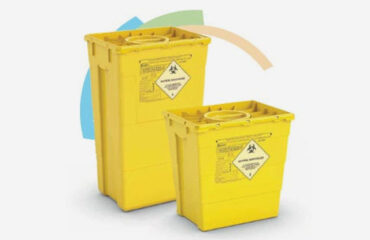The Only Guide for Reclaim Waste
The Only Guide for Reclaim Waste
Blog Article
Reclaim Waste Things To Know Before You Get This
Table of ContentsThe smart Trick of Reclaim Waste That Nobody is DiscussingReclaim Waste - TruthsA Biased View of Reclaim WasteThe 5-Minute Rule for Reclaim Waste6 Simple Techniques For Reclaim Waste
Explore the types, occurrences, and kinds of fluid waste. Domestic sewer waste refers to the waste and products from a property septic system. This type of waste is produced by humans in homes, schools, and other structures. This only includes septic systems that have a drainpipe field. The appropriate administration and disposal of domestic sewer waste require liquid waste to be moved to a sewage therapy plant where the appropriate methods and tools are applied to cleanse and deal with waste.
Commercial waste frequently consists of potential risks, such as combustible materials or a blend of fluid and solid waste products, and needs an advanced and comprehensive disposal procedure. The disposal of commercial waste normally involves the filtration of waste prior to transport to ensure risk-free and appropriate disposal. Industrial waste is developed from byproducts and overflow of commercial procedures and production.
This sort of waste can not make use of the same sewer management transportation or processes as septic or commercial liquids. The hazardous waste monitoring process needs the examination and screening of liquid waste before it goes through the disposal procedure (liquid waste disposal melbourne). Runoff waste is the liquid waste that comes from overflow and excess stormwater in extremely inhabited locations or cities
Overflow waste can trigger contamination and flooding otherwise managed properly. Discover more about sewer cleansing and waste monitoring. Guaranteeing appropriate waste administration can stop catastrophes and minimize ecological damage. Both individuals in property settings and professionals in commercial or manufacturing sectors can profit from comprehending the processes and policies of liquid waste monitoring.
The Only Guide to Reclaim Waste
Get in touch with PROS Providers today to find out about our waste management and disposal solutions and the proper ways to take care of the fluid waste you produce.
(https://slides.com/reclaimwaste1)Do you know what takes place to your water when you end, purge the toilet or drain pipes the cleaning maker? No? Well, it's worth understanding. This supposed 'wastewater' is not only a vital source but, after treatment, will certainly be released to our land, waterways or the sea. Utilized water from toilets, showers, baths, cooking area sinks, laundries and commercial processes is referred to as wastewater.

water made use of to cool down machinery or clean plant and tools). Stormwater, a type of wastewater, is runoff that streams from farming and metropolitan areas such as roof coverings, parks, gardens, roadways, paths and rain gutters right into stormwater drains, after rainfall. Stormwater streams neglected straight to regional creeks or rivers, at some point reaching the ocean.
The Main Principles Of Reclaim Waste
In Queensland, the majority of wastewater is treated at sewage treatment plants. Wastewater is moved from domestic or industrial sites through a system of drains and pump terminals, referred to as sewage reticulation, to a sewer therapy plant. City governments build, maintain and run most sewer therapy plants. Operators are certified under the Environmental Security Act 1994 to discharge treated wastewater at an appropriate ecological standard into rivers.
The Division of Natural Resources advises regional federal governments concerning managing, operating and preserving sewage systems and treatment plants. In unsewered locations, city governments might require homeowners to mount specific or home sewage treatment systems to treat residential wastewater from commodes, kitchen areas, shower rooms and laundries. The Department of Natural Resources authorizes the use of household systems when they are confirmed to be effective.
In some brand-new class, treatment of some stormwater to eliminate litter, sand and crushed rock has started utilizing gross pollutant traps. Wastewater treatment takes place in four phases: Removes strong issue.
Wastewater then moves into huge storage tanks where solids resolve and are eliminated as sludge. Grease and scum are skimmed from the surface area. Utilizes tiny living organisms referred to as micro-organisms to break down and eliminate remaining dissolved wastes and great bits. Micro-organisms and wastes are included in the sludge. Removes nitrogen and phosphorus nutrients that could trigger algal blossoms in our waterways and intimidate aquatic life.
Getting My Reclaim Waste To Work
Nutrient removal is not available in read more all sewer therapy plants because it requires expensive specialist devices. It is ending up being more common in Queensland. Clear liquid effluent produced after treatment may still include disease-causing micro-organisms. If this effluent is released into waterways such as rivers or the sea, the micro-organisms will ultimately die out.

Many wastewater streams into the sewerage system. Under the Act, regional governments carry out approvals and licences for eco appropriate tasks (Ages) entailing wastewater releases that might have a neighborhood impact.
The 9-Minute Rule for Reclaim Waste
Monitoring supplies valid details about water quality and can verify that permit problems are being satisfied. The details obtained via monitoring offers the basis for making water high quality choices.
Report this page